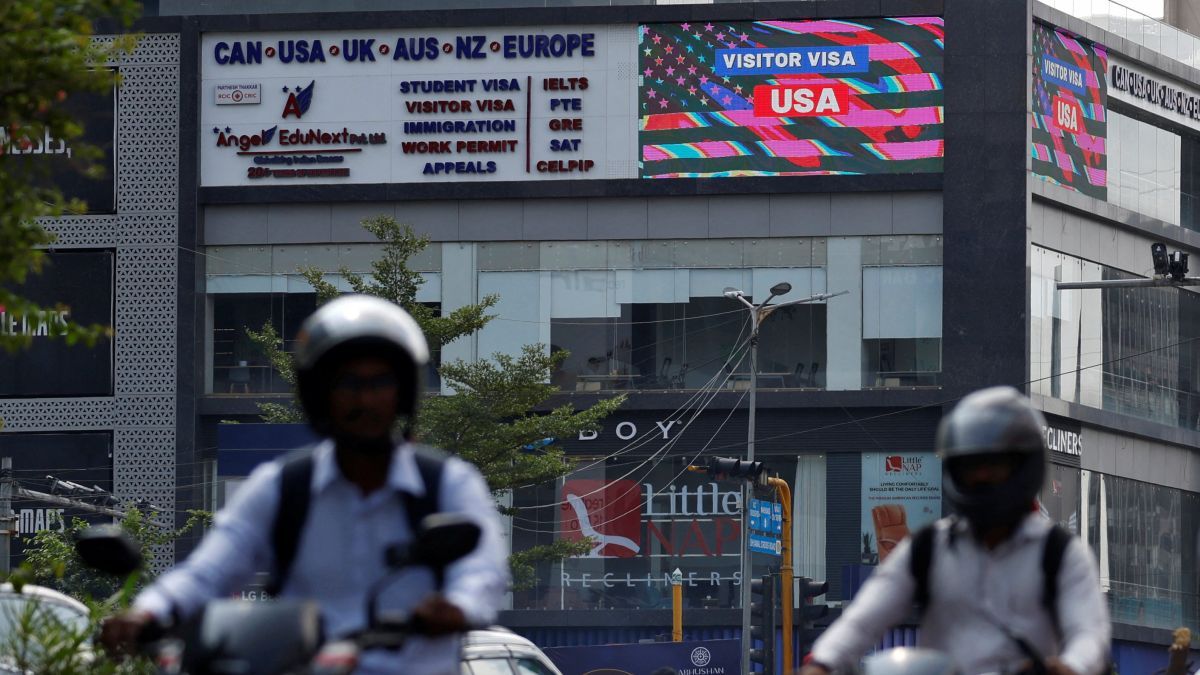First, he hiked the fee of the H-1B visa. Now, he’s proposing a major overhaul of the selection process, which in turn, could dash the ‘American dream’ for many.
On Tuesday (September 24), the Trump administration proposed overhauling the visa’s lottery selection process to prioritise higher-paid and higher-skilled foreign employees. The move comes amid the rising criticism of the visa programme, which many right-wingers and Maga supporters claim displace American workers.
What are the changes that the Trump administration is proposing? How will it hurt immigrants, namely Indians?
What is the H-1B visa programme and the lottery system?
Before we look at the changes that Trump officials are looking to make to the H-1B visa programme, let’s first understand the existing system and how it functions.
Started in 1990, the H-1B visa programme was designed for highly-educated, high-skilled workers to enter, work and live in the United States. Since the beginning, it has been extensively used by tech companies in the US to hire highly-skilled tech workers from countries like India.
Each year, 85,000 applicants are awarded this visa — 65,000 under the regular cap and an additional 20,000 for applicants with advanced US degrees. India is currently the biggest beneficiary of the H-1B visa programme. In 2024, out of 399,395 approved H-1B visas, Indians accounted for 71 per cent.
The way these visas are awarded are through a lottery — a random selection process conducted by the US Citizenship and Immigration Services (USCIS) to choose which employer registrations can move forward with filing a petition. Employers with online registrations selected in the annual lottery can move forward with filing a petition.
This process allows for equal odds of approval — be it a new graduate entering the workforce or a seasoned employee with a high-paying salary.
In recent times, this programme has come under a cloud; last Friday, the White House announced an annual fee of $100,000 for each H-1B visa. Following the announcement, some big tech companies warned visa holders to stay in the US or quickly return, sparking a chaotic scramble to get back to the US. The White House later clarified the fee would apply only to new visas.
What are the proposed changes to the lottery system?
Now, on Tuesday (September 23), the Department of Homeland Security (DHS) has proposed to scrap the existing lottery system and suggested a wage-based selection process. According to the DHS proposal, the implementation of a weighted selection process would favour the allocation of H-1B visas to higher-skilled and higher-paid foreign workers.
The DHS has proposed a four-tier wage system for H-1B visas, where Level 1 is for entry-level workers, Level 2 for qualified professionals, Level 3 for experienced professionals, and Level 4 for highly specialised senior workers.
The proposal suggests that workers who are in the top wage levels would be entered into the selection pool four times and those at the lowest tier would only be entered once.
Immigration and visa experts note that the new proposal would favour big companies with deep pockets over smaller companies, which could affect the economy.
What would be the impact of these changes?
If the H-1B lottery is replaced with this wage-based selection, it would have a tremendous impact, with Indians feeling it the most.
Nicole Gunara, Principal Immigration Attorney, Manifest Law in an NDTV report explained the impact of this proposed change. “In effect, an engineer offered $150,000 at Meta might now have multiple lottery entries, while a junior developer at a startup earning $70,000 might only get one. This tilts the system toward established companies that can pay at the top of the market and away from emerging firms that rely on younger international talent,” Gunara said.
“If this rule goes into effect, the H-1B lottery will no longer be purely random. Instead, each applicant’s odds will be weighted by salary level. A candidate in a top wage tier could receive multiple entries in the lottery, while someone at an entry-level salary may only get one. That means higher-paid, senior roles will have significantly better chances of selection, while recent graduates and early-career workers will face much steeper odds,” she added.
Deedy Das, a partner at Menlo Ventures venture capital group, said in a social media post that the latest proposal would hurt many tech companies. “Overall, it’s really bad for startups, early employees, helps IT consulting shops and can be easily gamed,“ Das wrote.
Even other experts had similar opinions, adding that Indians , mainly at the entry-level, would be disproportionately affected by these changes to the lottery system. As Heritage Institute, a conservative think tank, noted that most of the H-1B positions are filled by Indians at the entry-level. Hence, if the changes do come into effect, they would be the most affected.
What happens next?
It remains to be seen if the proposed changes are implemented with lawyers expressing scepticism. They note the proposal is unlawful because the Immigration and Nationality Act calls for issuing visas in the order in which petitions are received.
Many also fear that the proposed changes to the lottery system and the $100,000 fee could further hurt India-US ties. Some note that Trump’s fee hike could dent India’s economy by reducing how many H1-B holders send money home.
Alexander Slater, managing director at Capstone, a global forecasting and business strategy firm in Washington told the New York Times, “These visas give Indians substantial exposure to the US, its professional culture and its soft power. “If the outcome of the policy change is that fewer Indians are working with Americans, it will weaken a significant bond between the two countries.”
With inputs from agencies
)